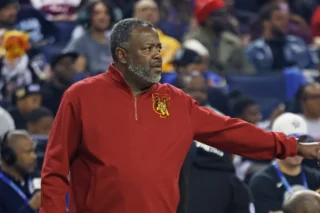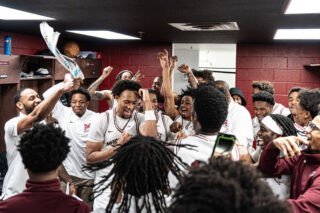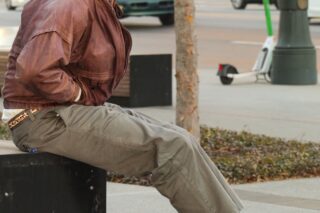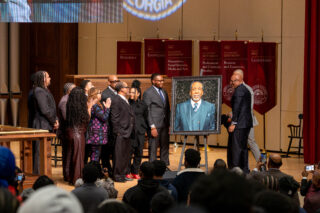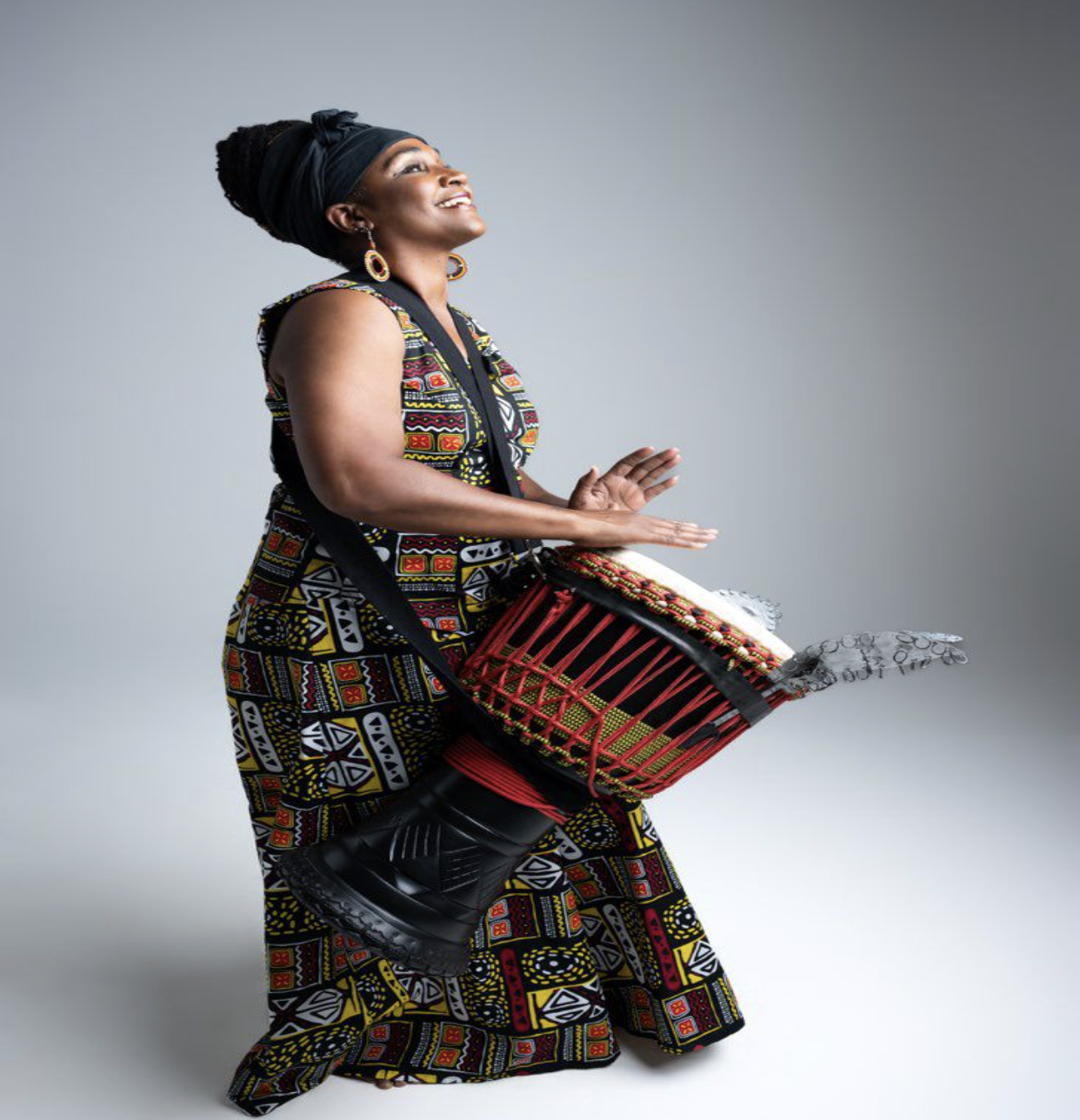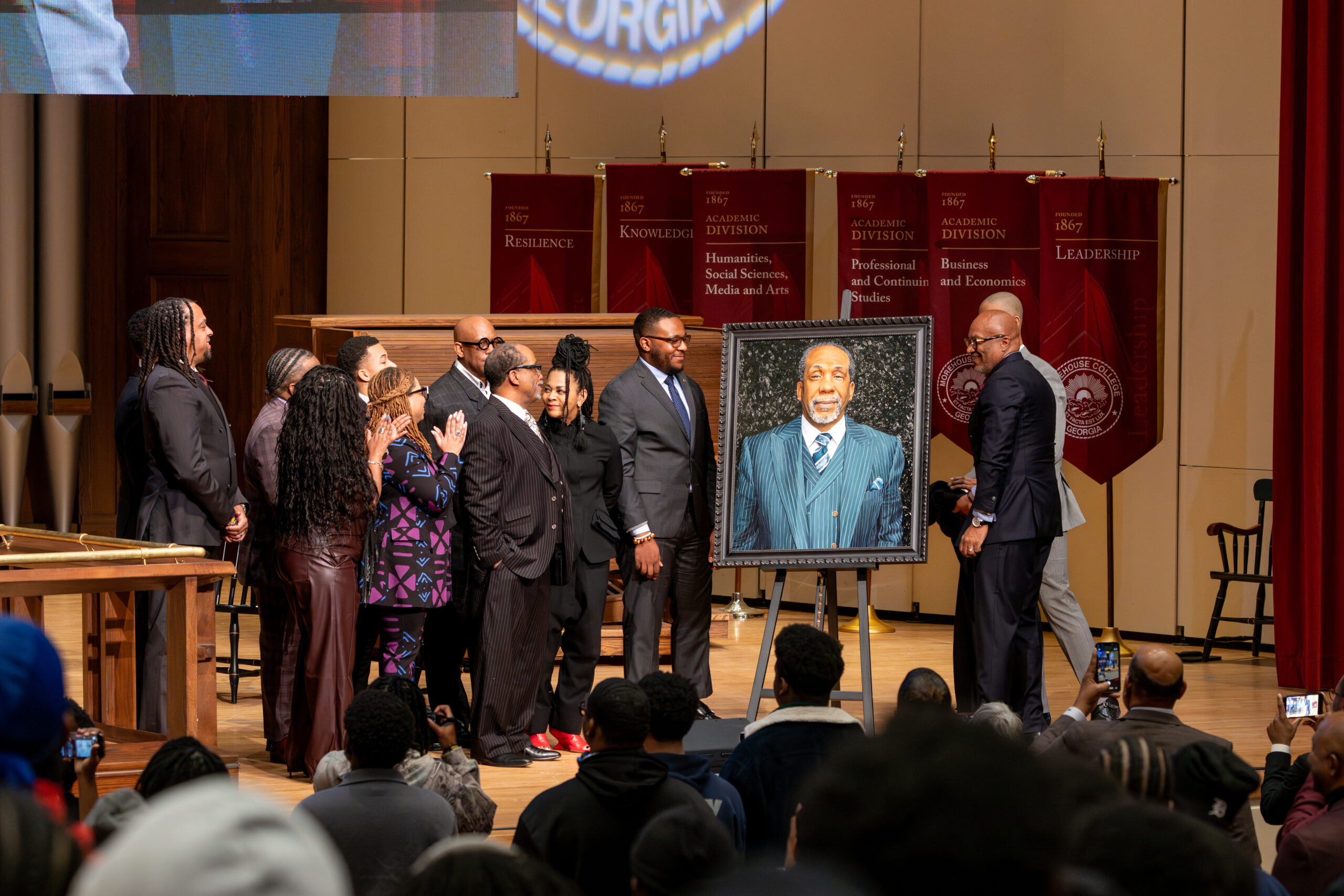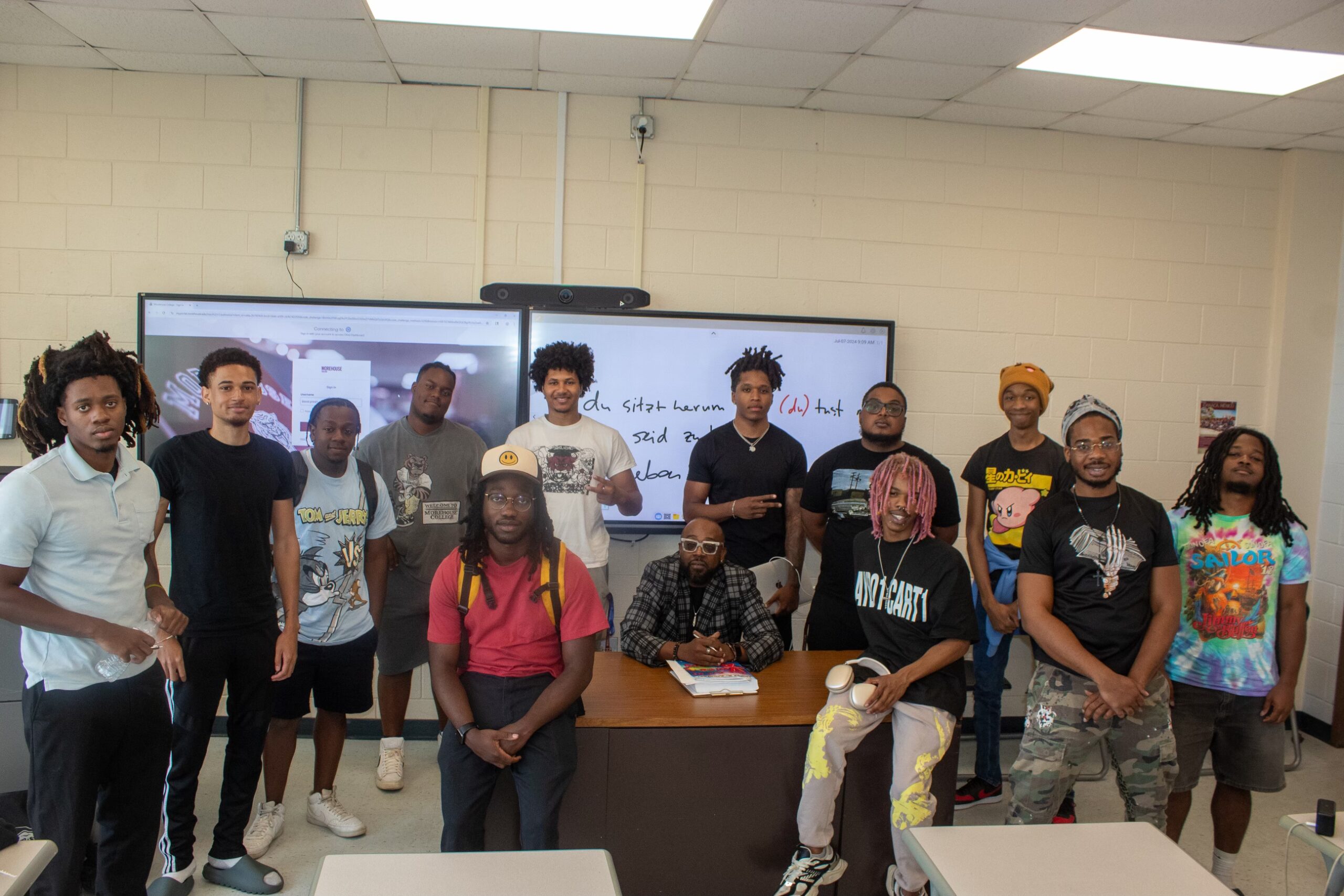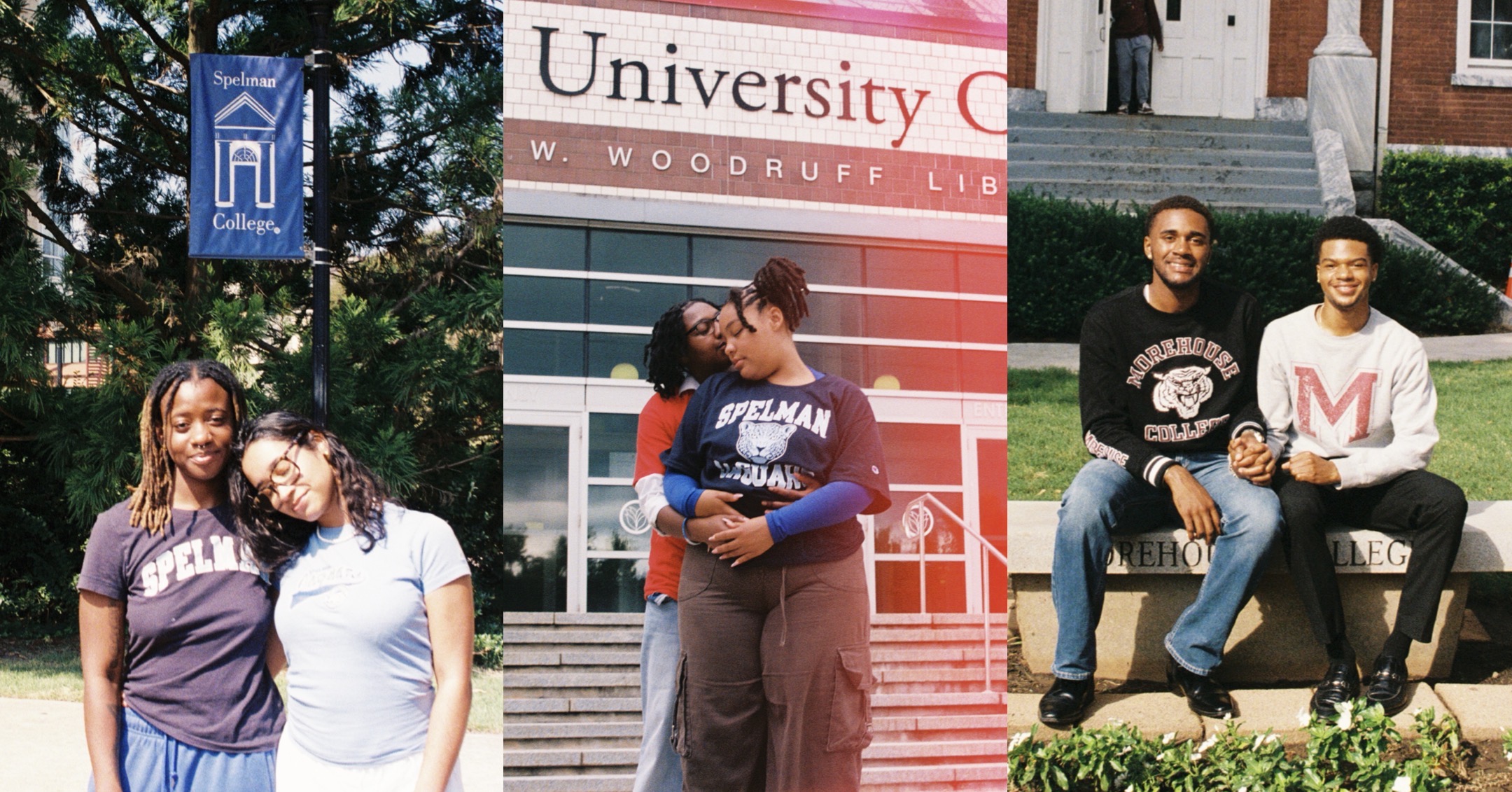Image via Shoccara Marcus
By: Mira Donaldson, Staff Writer
In the rich tapestry of Black history, the profound impact of individuals within Historical Black Colleges echoes through time. At Spelman College, one figure stands out, weaving an enduring legacy—Omelika Kuumba, affectionately known as “Sister Omelika.”
Kuumba is known for her confident drumming on the jimbe, firm dance moves and most importantly her welcoming and captivating spirit that have allowed her to make a prominent impact in the Atlanta community and specifically at Spelman College. Kuumba, is a renowned choreographer, drummer, dancer and musical artist that as time has gone by her presence continues to impact others.
One of the many projects she has been known for in the Atlanta Community was being a co- founder of GIWEN-MATA a dance, percussion and vocal ensemble. In addition to this, Kuumba shared her talents during the opening and closing ceremonies of the Summer Olympic Games in 1996. With all this experience with her, she has been no stranger to sharing it with the world.
Hailing from Brooklyn, New York, Kuumba’s journey was guided by her family’s subtle influence, steeped in the traditions of Morehouse and Spelman College. Despite initial aspirations for Howard University, a compelling presentation during a Spelman preview day altered Kuumba’s trajectory.
“I wanted to go to Howard at first,” Kuumba said. “My mom always told me about these phenomenal experiences she had at Spelman and at the back of my mind, it sounded nice, in that way, I think that she was showing me Spelman was the best choice for me”
With her mother, grandmother, and grandfather being in the Morehouse and Spelman College glee clubs and her mother being first attendant to Miss Maroon and White, Kuumba’s pedigree was no secret to making a mark on campus. Her father is a record holding basketball player for the Morehouse college basketball team, being the 5th highest scorer.
“ I have a strong history at Spelman as a student, as a faculty member and as an alum” she said.
Now, celebrating her 25th year of teaching at Spelman, Kuumba’s imprint extends beyond the classroom. As a former Student Government Association member, Miss Maroon and White at Morehouse, and member of the Eta Kappa Chapter of Delta Sigma Theta Sorority Inc, she has always prioritized Spelman’s leadership.
As an Alumn, Kuumba’s influence persists through her teaching. She specializes in African Dance Forms, a cornerstone for dance majors, and introduced a new course, West African Rhythms.
“At first I was a little nervous,” Anaya Hicks, Senior Dance major at Spelman college said. “But, Sister Omelika is such a phenomenal educator, the way that she breaks things down from the beginning to the end helped me to understand what we were doing”
“My experience in Sister Omelika’s class was integral to my Spelman dance experience” Hicks, said “ One thing everyone can agree on universally is that you have to take Sister Omelika before you graduate”
Reflecting on a project exploring the evolution of African dance in the diaspora, Hicks gained a deeper understanding of its transformation amid historical shifts.
“As college students you all need to be scholastic,” Kuumba said “It’s important that we approach other topics that we teach with the same level commitment that we would if it was a science or english class.”
However, it’s not just the academic content that resonates with students. Anaya fondly recalls Kuumba’s unique way of concluding each class with a mantra.
“I honor the place within you where the entire universe resides,” Kuumba would say.
Taylor Mills, a sophomore dance major at Spelman College, has had a first hand experience with this sense of family that comes out of Kuumba’s classes and choreographed pieces.
“She is like a legit mother to me, even though I already have a mom, I will follow that lady anywhere she goes,” Mills said.
She has been an integral part of several choreographed pieces led by Kuumba. Mills emphasized the valuable sense of accountability that Kuumba instilled in her students. This involvement included performances from Spelman Dance Theatre and a West African Rhythms course.
“She was hard on me,” Mills noted. “If she was not hard on me, I probably would not have looked right. I appreciate the fact that she is ‘tit for tat.’ I have been following her ever since.”
Kuumba’s journey into African dance began with a six-week program, introduced to her by a teacher that was teaching African dance to young students during the summer. This later expanded to include drumming at the age of 28.
Overcoming challenges in recruiting drummers, she ventured into teaching and eventually secured her own class in 1997. This journey was instigated by one of Kuumba’s teachers, Judy Gabry Hewitt, PHD a Spelman Alum and activist.
“She is the reason why I am the way I am in the classroom,” Kuumba said.
After taking a gap year from her education at Spelman, instigated her return.
“She definitely was a part of why I enjoyed my return back to Spelman College,” Kuumba said.
When Kuumba came back to Spelman, Kuumba transitioned to a philosophy major in the middle of her college career, due to her introspective spirit and self learning. Because her joyful return to Spelman, and her teaching African dance for the past 25 years here is due to her educators at the time, she is committed to being the same for those who are matriculating through Spelman now.
Looking ahead, Kuumba remains deliberate in her intentions for the coming years at Spelman. Her goal is clear to give her students influences that shaped her and build on her parents’ legacies. In Kuumba, the living legacy of Black history perseveres, leaving an indelible mark on Spelman College.
Copy Edited by: Auzzy Byrdsell, Editor-in-Chief


